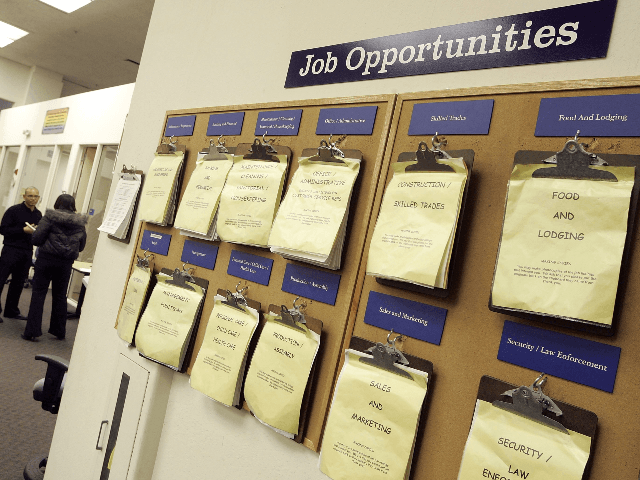The generous unemployment benefits in the United States likely have prevented over seven million people from accepting a job offer, based on data from a recent Morning Consult poll.
The week before the poll was conducted, the week ending June 19, there were 14.1 million adults who received unemployment benefits, which is the most recent estimated total of recipients from both the state and federal programs.
The poll shows that generous unemployment insurance benefits from the government have greatly reduced the number of job offers accepted by the unemployed throughout the course of the Chinese coronavirus pandemic.
Fifty percent have said they turned down a job because of the need to take care of children, family members, coronavirus, or health reasons.
The other 50 percent said they turned down a job because the offer was unattractive to them economically, provided too few or too many hours of work, did not allow remote work, or was not in the “desired” industry.
That is exactly what was predicted would happen with high levels of benefits driving a disincentive to work.
Morning Consult’s own analysis showed 1.84 million turned down jobs due to the enhanced benefits. That is how many workers said directly it was the high level of benefits that kept them from work. But that undercounts the number of those influenced by the benefits – more likely an estimated total of 7,050,000. Many of the reasons cited for turning down work would be less influential if benefit levels were lower.
Typically, those on unemployment are not allowed to turn down suitable jobs and keep their benefits. As the Wall Street Journal explained, “Quitting a job or refusing a job offer disqualifies a person from receiving unemployment benefits.”
“If you refuse a job or don’t show up when called back to work, the employer is supposed to report that to the state unemployment agency, which can end your benefits,” the report added.
Not being allowed to work remotely would not typically qualify as making a job not suitable, for example. Many states, however, suspended rules requiring employees to search for jobs during the pandemic. What’s more, the agencies administering unemployment benefits have been so overwhelmed by the extraordinary amount of applications during the pandemic that many have effectively ceased or slowed down enforcement of rules requiring beneficiaries to accept work.
By the end of July, there will be a total of 24 states that will have phased out the extra benefits. Two states—Indiana and Maryland—that decided to end benefits have been ordered to continue them by federal judges. This means there could potentially be roughly seven million more people rapidly looking to join the workforce as the benefits go away.
Editor’s note: This story was updated to include more information from the Morning Consult Poll and to reflect that it is an interpretation of data and thus is an opinion piece.

COMMENTS
Please let us know if you're having issues with commenting.